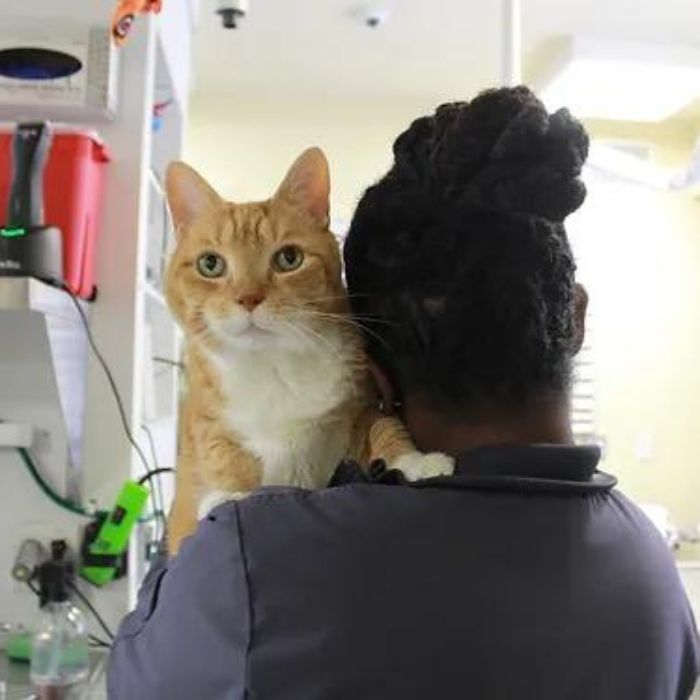Pet Geriatric Care
Pet geriatric care is specialized support for aging pets, promoting their well-being and comfort in their golden years.
Comprehensive Geriatric Care for Senior Cats and Dogs
Companion Pet Hospital in Philadelphia, PA, offers compassionate care for senior pets to minimize the effects of painful conditions related to the aging process, reduce the occurrence of debilitating diseases and add healthy years to your pet’s life.
Most small animal companions are considered seniors by age seven and may experience various age-related changes. With quality veterinary care and a diligent focus on healthy lifestyle choices, most pet owners find their old friends to be happier, more comfortable, and more active for many years.
What to Look for in a Senior Pet
Older pets may experience subtle and gradual changes, or they may come on suddenly. Every pet is unique. As a pet owner, you want to be aware of any change in your companion animal and bring that information to your regular visit to our pet hospital. Together, we will address the changes you have noticed and initiate treatment modalities as needed.
Physical Changes
These are typical of aging and often the first noticed by pet owners, such as stiffness, struggles with mobility, or changes in physical condition. You may also notice your aging pet develops inappropriate elimination. The kidneys are one of the first organs to decline in a cat or dog, and daytime accidents or nighttime urine leakage may occur. Excessive urination may be a sign of kidney failure or diabetes, both treatable if caught early.
Sensory Changes
Sensory changes and slower responses to external stimuli may be seen in any significant sense—hearing, sight, taste, touch, and smell. These can be difficult for pet owners to identify but may be noticed as a lack of interest in food or a slow response at attempts to engage in play.
Behavioral Changes
Cognitive changes may be demonstrated by behaviors such as confusion, depression, or aggression. Behaviors that are puzzling, drastically different from usual, or seem to come and go are often symptoms of an underlying, more serious problem. It is often possible to treat these issues if caught before they have progressed too far.
Supporting Your Senior Pet
A practical approach to supporting the health and vigor of your aging pet includes proper nutrition, routine exercise, and regular dental care. If you live in Philadelphia or a surrounding area, our veterinarians can help your senior pet achieve optimal health by identifying emerging health issues early on and providing proactive treatment.
With you, we will create a plan for your pet that may include the following:
- Veterinary exams 2-3 times a year
- Regular oral exams and dental cleanings
- Senior lab work, including blood screening, urine, and fecal testing
- Hearing and vision exams
- Diet and nutrition changes
- Exercise and pain management
- Environmental changes (such as stairs)

